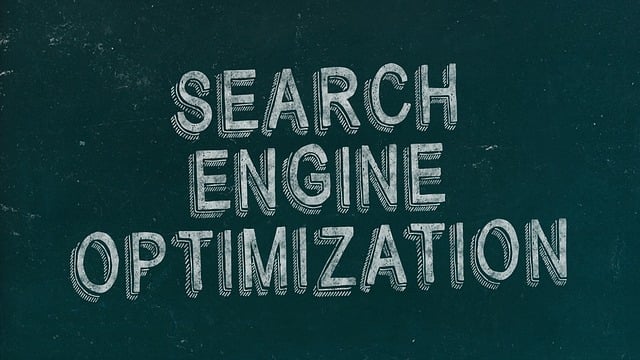AI investment risk scoring engines are revolutionizing commercial real estate (CRE) management by predicting maintenance needs, optimizing resource allocation, minimizing downtime, and reducing tenant turnover. These systems process vast datasets to offer detailed risk profiles for investment options, helping investors and managers make informed decisions and maximize returns. However, implementing AI in CRE maintenance scheduling comes with challenges like data compatibility, cybersecurity, and employee training, which can be mitigated through rigorous testing, continuous monitoring, and feedback loops. By ensuring data quality, model interpretability, and regulatory compliance, AI scoring engines enable strategic and risk-minimized integration of AI in CRE maintenance.
“Revolutionize commercial real estate (CRE) maintenance scheduling with AI—a game-changer in property management. This article explores how artificial intelligence transforms asset care, enhancing efficiency and reducing costs. From predictive analytics for proactive maintenance to advanced risk scoring engines, AI optimizes investments. We delve into the benefits, such as improved safety, enhanced tenant satisfaction, and data-driven decision-making. However, challenges like bias mitigation and privacy concerns must be addressed. Embrace AI’s potential while navigating implementation risks for a smarter, more sustainable CRE future.”
- Understanding AI's Role in Commercial Real Estate Maintenance Scheduling
- The Benefits of Using AI for Property Management and Investment Risk Scoring
- Overcoming Challenges and Mitigating Risks Associated with AI Implementation in CRE Maintenance
Understanding AI's Role in Commercial Real Estate Maintenance Scheduling

In the realm of commercial real estate, efficient maintenance scheduling is paramount for optimal property management. Artificial Intelligence (AI) is revolutionizing this process by offering advanced solutions tailored to meet the unique challenges of maintaining large portfolios. AI algorithms, particularly investment risk scoring engines, play a pivotal role in streamlining scheduling tasks and enhancing overall property upkeep.
These intelligent systems analyze historical data on maintenance requests, repair costs, and tenant feedback to predict potential issues and set proactive schedules. By evaluating various factors, including building age, occupancy rates, and previous maintenance trends, AI investment risk scoring engines can identify high-risk areas and allocate resources efficiently. This not only minimizes unexpected downtime and associated costs but also ensures a well-maintained environment for tenants, thereby reducing turnover rates.
The Benefits of Using AI for Property Management and Investment Risk Scoring

The implementation of Artificial Intelligence (AI) in commercial real estate offers significant advantages for property management and investment decisions. One of its most valuable applications is in risk assessment, particularly AI investment risk scoring engines. These advanced systems can analyze vast amounts of data to predict potential issues, such as tenant defaults, maintenance costs, or market fluctuations, with remarkable accuracy. By evaluating historical trends, property characteristics, and market dynamics, AI algorithms provide a comprehensive risk profile for each investment opportunity.
This technology empowers investors and property managers to make informed choices, allowing them to mitigate risks and optimize returns. With AI-driven insights, professionals can identify high-value properties, set strategic rental rates, and efficiently plan maintenance schedules. As a result, the use of AI in real estate enhances overall portfolio performance while ensuring that investment decisions are based on robust data analysis.
Overcoming Challenges and Mitigating Risks Associated with AI Implementation in CRE Maintenance

Implementing AI in commercial real estate (CRE) maintenance scheduling comes with its unique set of challenges and risks. One significant hurdle is integrating AI systems seamlessly into existing workflows, requiring careful consideration of data compatibility, cybersecurity, and employee training to ensure smooth transition and adoption. Moreover, as AI models learn from historical data, initial inaccuracies or biases could lead to suboptimal scheduling decisions, impacting operations negatively.
Risk mitigation strategies include rigorous testing and validation of AI algorithms using diverse datasets, continuous monitoring for performance drift, and implementing robust feedback loops to refine models over time. Additionally, employing AI investment risk scoring engines can help assess the potential return on investment by considering factors like data quality, model interpretability, and regulatory compliance. This proactive approach ensures that AI integration in CRE maintenance is not just a technological advancement but also a strategic decision that minimizes risks and maximizes benefits.
AI is transforming commercial real estate maintenance scheduling by streamlining processes, enhancing efficiency, and providing valuable insights through advanced analytics. The benefits extend to property management and investment risk scoring, allowing for data-driven decisions and optimized portfolio performance. While challenges exist, such as data privacy concerns and algorithmic bias, proactive measures like robust data governance and continuous monitoring can mitigate risks. By embracing AI investment risk scoring engines, the commercial real estate industry stands to gain significantly in terms of cost savings, improved asset management, and enhanced overall sustainability.
